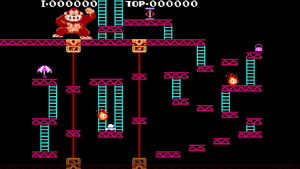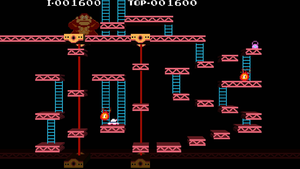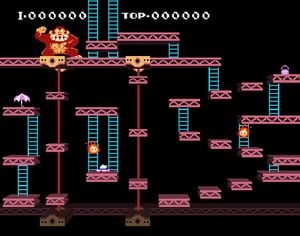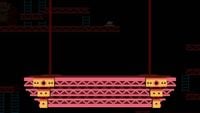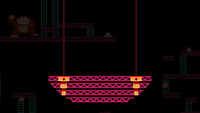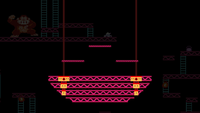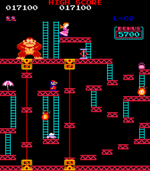75m: Difference between revisions
No edit summary |
m (Missing reflist. Minor format changes) |
||
| Line 13: | Line 13: | ||
|brawlmusic = ''{{SSBBMusicLink|Donkey Kong|Donkey Kong}}'' (100%)<br>''{{SSBBMusicLink|Donkey Kong|Opening (Donkey Kong)}}'' (50%)<br>''{{SSBBMusicLink|Donkey Kong|25m BGM}}'' (25%) | |brawlmusic = ''{{SSBBMusicLink|Donkey Kong|Donkey Kong}}'' (100%)<br>''{{SSBBMusicLink|Donkey Kong|Opening (Donkey Kong)}}'' (50%)<br>''{{SSBBMusicLink|Donkey Kong|25m BGM}}'' (25%) | ||
|forwiiumusic = ''{{SSB4MusicLink|Donkey Kong|Donkey Kong}}''<br>''{{SSB4MusicLink|Donkey Kong|Opening (Donkey Kong)}}''<br>''{{SSB4MusicLink|Super Mario Bros.|Mario Bros.}}''<br>''{{SSB4MusicLink|Donkey Kong|25m Theme}}''<br>''{{SSB4MusicLink|Super Mario Bros.|Chill (Dr. Mario) Ver. 2}}''<br>'''''{{SSB4MusicLink|Nintendo|PictoChat}}''''' | |forwiiumusic = ''{{SSB4MusicLink|Donkey Kong|Donkey Kong}}''<br>''{{SSB4MusicLink|Donkey Kong|Opening (Donkey Kong)}}''<br>''{{SSB4MusicLink|Super Mario Bros.|Mario Bros.}}''<br>''{{SSB4MusicLink|Donkey Kong|25m Theme}}''<br>''{{SSB4MusicLink|Super Mario Bros.|Chill (Dr. Mario) Ver. 2}}''<br>'''''{{SSB4MusicLink|Nintendo|PictoChat}}''''' | ||
|ultimatemusic = [[List of SSBU Music (Donkey Kong series)|''Donkey Kong'' series music]]<br>Main: ''{{SSBUMusicLink|Donkey Kong|Donkey Kong / Donkey Kong Jr. Medley}}''<br>Alternate: ''{{SSBUMusicLink|Donkey Kong|25m Theme}}'' | |ultimatemusic = [[List of SSBU Music (Donkey Kong series)|''Donkey Kong'' series music]]<br>Main: ''{{SSBUMusicLink|Donkey Kong|Donkey Kong / Donkey Kong Jr. Medley}}''<br>Alternate: ''{{SSBUMusicLink|Donkey Kong|25m Theme}}'' | ||
|brawlsingles = Banned | |brawlsingles = Banned | ||
|brawldoubles = Banned | |brawldoubles = Banned | ||
| Line 24: | Line 24: | ||
|interwikipage= 75m | |interwikipage= 75m | ||
}} | }} | ||
'''75m''' (also written '''75 m''') is an unlockable [[stage]] in ''[[Super Smash Bros. Brawl]]'', a [[Familiar Stage]] in {{forwiiu}}, and a [[Starter Stage]] in ''[[Super Smash Bros. Ultimate]]''. The stage is based on the 75m level of the original arcade version of ''{{b|Donkey Kong|game}}''; however, it is a bit more reminiscent of the {{ | '''75m''' (also written '''75 m''') is an unlockable [[stage]] in ''[[Super Smash Bros. Brawl]]'', a [[Familiar Stage]] in {{forwiiu}}, and a [[Starter Stage]] in ''[[Super Smash Bros. Ultimate]]''. The stage is based on the 75m level of the original arcade version of ''{{b|Donkey Kong|game}}''; however, it is a bit more reminiscent of the {{iw|nwiki|NES}} port (in ''Brawl'' and ''for Wii U'') rather than the original arcade version, but ''Ultimate'' changed the aesthetics of it to match the original arcade version. This stage is playable in [[8-Player Smash]]es in ''Super Smash Bros. for Wii U''. | ||
75m also appears as the starting level in the ''{{b|Donkey Kong|game}}'' [[Masterpiece]]. | 75m also appears as the starting level in the ''{{b|Donkey Kong|game}}'' [[Masterpiece]]. | ||
| Line 31: | Line 31: | ||
The stage is a retro stage in the sense that it uses 8-bit graphics to replicate the look of the original game. Unlike [[Flat Zone]] and [[Flat Zone 2]], the stage is not completely 2D, as the platforms and ladders all have depth (in ''Brawl'' and ''for Wii U''), although this depth can only be seen in ''Ultimate'' by manually rotating the camera when paused or during a replay. There are many small platforms at the bottom part of the stage, but there is also a long platform on the top, and several larger platforms on the right. The bottom-most platform (with the bottom part of the two elevators) is in the background, so that players cannot land on it, but fall through it instead. The stage has walk-off [[blast line]]s on some of the platforms. Numerous ladders connect some of the platforms, but the ladders next to the [[Donkey Kong]] arcade sprite can not be climbed. In the center of the stage, there are two moving elevators with small platforms. The left one travels upward, bringing characters to the long platform on top and the one on the right travels downwards towards the bottom blast line. The platforms cannot be jumped through from above, only from below. 75m is the second largest new stage in ''Brawl'' after [[New Pork City]]. [[Masahiro Sakurai]] has stated that the stage is quite large, but the small platforms and dangers give the stage a cramped feel. | The stage is a retro stage in the sense that it uses 8-bit graphics to replicate the look of the original game. Unlike [[Flat Zone]] and [[Flat Zone 2]], the stage is not completely 2D, as the platforms and ladders all have depth (in ''Brawl'' and ''for Wii U''), although this depth can only be seen in ''Ultimate'' by manually rotating the camera when paused or during a replay. There are many small platforms at the bottom part of the stage, but there is also a long platform on the top, and several larger platforms on the right. The bottom-most platform (with the bottom part of the two elevators) is in the background, so that players cannot land on it, but fall through it instead. The stage has walk-off [[blast line]]s on some of the platforms. Numerous ladders connect some of the platforms, but the ladders next to the [[Donkey Kong]] arcade sprite can not be climbed. In the center of the stage, there are two moving elevators with small platforms. The left one travels upward, bringing characters to the long platform on top and the one on the right travels downwards towards the bottom blast line. The platforms cannot be jumped through from above, only from below. 75m is the second largest new stage in ''Brawl'' after [[New Pork City]]. [[Masahiro Sakurai]] has stated that the stage is quite large, but the small platforms and dangers give the stage a cramped feel. | ||
A key part of this stage is the arcade sprite of Donkey Kong (who, as discussed in [[Snake's Codec Messages#Donkey Kong|one of Snake's Codec conversations]], is actually a younger {{ | A key part of this stage is the arcade sprite of Donkey Kong (who, as discussed in [[Snake's Codec Messages#Donkey Kong|one of Snake's Codec conversations]], is actually a younger {{iw|mariowiki|Cranky Kong}}), who sits on the long platform. He normally sits behind the stage in the background, but will sometimes light up and comes into the foreground. When this happens, the stage's usual background music will briefly fade out and play his theme for a few seconds, giving an opportunity for players to react before he attacks. While he is in the foreground, contacting him causes moderate [[damage]] and [[knockback]]. Four jacks will also bounce in from the left at irregular intervals (for example, Donkey Kong can throw one jack, briefly pause, and then resume throwing the jacks) and fall after they bounce off the long platform, also causing damage and knockback. After a certain amount of time, Donkey Kong will go back into the background. | ||
All items from the original ''Donkey Kong'' game return as items in the stage, which are the Trouble Bugs, jacks, the purses, the umbrellas, and the hats. The Trouble Bugs move along the platforms and ladders, and cause [[flame|fire]] damage and knockback upon contact. The purses, the umbrellas, and the hats can be picked up if a character touches them, and this has no effect on gameplay. The score in the top left-hand corner increases by 800 each time an item is picked up, but this also has no effect on gameplay. | All items from the original ''Donkey Kong'' game return as items in the stage, which are the Trouble Bugs, jacks, the purses, the umbrellas, and the hats. The Trouble Bugs move along the platforms and ladders, and cause [[flame|fire]] damage and knockback upon contact. The purses, the umbrellas, and the hats can be picked up if a character touches them, and this has no effect on gameplay. The score in the top left-hand corner increases by 800 each time an item is picked up, but this also has no effect on gameplay. | ||
Gameplay on 75m tends to take place in the upper right-hand corner. This area is much more flat and has fewer gaps than the rest of the level, and is much less prone to random objects flying out and [[KO]]ing players. | Gameplay on 75m tends to take place in the upper right-hand corner. This area is much more flat and has fewer gaps than the rest of the level, and is much less prone to random objects flying out and [[KO]]ing players. While a large stage in terms of [[blast line]]s, it tends to feel cramped because of the many small platforms. Also, because the majority of the fighting takes place in the upper right hand corner, the stage tends to feel imbalanced towards that side. In general, it is quite difficult to KO a player off the left or bottom edges, while it is rather easy to do so off the top or right. | ||
While not much has changed in the stage when ported to {{forwiiu}}, the platforms on the right have been changed into regular platforms instead of walk-offs. This makes the platform where Donkey Kong appears the only walk-off on the stage. In addition, several platforms have been changed allowing players to pass through them from above, allowing more mobility in the stage. A platform connected with a ladder can not be passed through however, with the exception of the unclimbable ladders next to Donkey Kong; the elevators can not be passed through from above as well. Furthermore, while Donkey Kong is in the foreground, only one to two jacks at a time will bounce in as opposed to four, reducing the number of active hazards. Donkey Kong still pauses occasionally for a good time before resuming his throwing. | While not much has changed in the stage when ported to {{forwiiu}}, the platforms on the right have been changed into regular platforms instead of walk-offs. This makes the platform where Donkey Kong appears the only walk-off on the stage. In addition, several platforms have been changed allowing players to pass through them from above, allowing more mobility in the stage. A platform connected with a ladder can not be passed through however, with the exception of the unclimbable ladders next to Donkey Kong; the elevators can not be passed through from above as well. Furthermore, while Donkey Kong is in the foreground, only one to two jacks at a time will bounce in as opposed to four, reducing the number of active hazards. Donkey Kong still pauses occasionally for a good time before resuming his throwing. | ||
| Line 44: | Line 44: | ||
In ''Super Smash Bros. for Wii U'', the [[Ω form]] features a triple layer platform of girders. Some parts of the original stage can be seen faded in the background. The Retro Donkey Kong will not throw any jumping jacks, and enemies or collectibles appear only in the background. | In ''Super Smash Bros. for Wii U'', the [[Ω form]] features a triple layer platform of girders. Some parts of the original stage can be seen faded in the background. The Retro Donkey Kong will not throw any jumping jacks, and enemies or collectibles appear only in the background. | ||
In ''Super Smash Bros. Ultimate'', the Ω form and [[Battlefield form]] are similar to ''SSB4'''s Ω form; however, it is now a quadruple layer platform, and they are resized and reshaped to match {{SSBU|Final Destination}} and {{SSBU|Battlefield}}, respectively. The three [[soft platform]]s of the Battlefield form are thinner versions of girders. | In ''Super Smash Bros. Ultimate'', the Ω form and [[Battlefield form]] are similar to ''SSB4''{{'}}s Ω form; however, it is now a quadruple layer platform, and they are resized and reshaped to match {{SSBU|Final Destination}} and {{SSBU|Battlefield}}, respectively. The three [[soft platform]]s of the Battlefield form are thinner versions of girders. | ||
<gallery widths="200px"> | <gallery widths="200px"> | ||
SSB4U75mOmega.jpg|Ω form in ''Super Smash Bros. for Wii U''. | SSB4U75mOmega.jpg|Ω form in ''Super Smash Bros. for Wii U''. | ||
SSBU-75mOmega.png|Ω form in ''Super Smash Bros. Ultimate''. | SSBU-75mOmega.png|Ω form in ''Super Smash Bros. Ultimate''. | ||
SSBU-75mBattlefield.png|Battlefield form in ''Super Smash Bros. Ultimate''. | SSBU-75mBattlefield.png|Battlefield form in ''Super Smash Bros. Ultimate''. | ||
| Line 54: | Line 54: | ||
With hazards off in ''Ultimate'', no Trouble Bugs appear, and Donkey Kong does not come out from the background and throw jacks. The elevator platforms do not move, and instead two stationary semisolid elevator platforms are present in both of the elevator columns. Pauline's hat, purse, and parasol still appear and can still be collected to increase the score. | With hazards off in ''Ultimate'', no Trouble Bugs appear, and Donkey Kong does not come out from the background and throw jacks. The elevator platforms do not move, and instead two stationary semisolid elevator platforms are present in both of the elevator columns. Pauline's hat, purse, and parasol still appear and can still be collected to increase the score. | ||
== Origin == | ==Origin== | ||
[[File:75m.png|thumb|left|150px|The appearance of the 75 m level in the original arcade version of ''Donkey Kong''.]] | [[File:75m.png|thumb|left|150px|The appearance of the 75 m level in the original arcade version of ''Donkey Kong''.]] | ||
''Donkey Kong'' was the first title to feature [[Mario]], then portrayed as a carpenter as opposed to a plumber. In the game, heavily inspired by ''King Kong'' and the ''Popeye'' cartoon ''A Dream Walking'', he must chase Donkey Kong up the construction site of a skyscraper to rescue Pauline. The location of the game was stated at the time of its release to be real world {{iw|wikipedia|New York City}}, however later games have contradicted this with differently named urban areas implied to be one and the same, such as the [[New Donk City Hall|Metro Kingdom]] in ''Super Mario Odyssey'' and Big Ape City in ''Donkey Kong Land''. | ''Donkey Kong'' was the first title to feature [[Mario]], then portrayed as a carpenter as opposed to a plumber. In the game, heavily inspired by ''King Kong'' and the ''Popeye'' cartoon ''A Dream Walking'', he must chase Donkey Kong up the construction site of a skyscraper to rescue Pauline. The location of the game was stated at the time of its release to be real world {{iw|wikipedia|New York City}}, however later games have contradicted this with differently named urban areas implied to be one and the same, such as the [[New Donk City Hall|Metro Kingdom]] in ''Super Mario Odyssey'' and Big Ape City in ''Donkey Kong Land''. | ||
This stage is based on the second level of the game (or third in the arcade version), in which Mario must maneuver through obstacles such as vertically moving platforms, bouncing [[mariowiki:Springboard|jacks]], and {{ | This stage is based on the second level of the game (or third in the arcade version), in which Mario must maneuver through obstacles such as vertically moving platforms, bouncing [[mariowiki:Springboard|jacks]], and {{iw|mariowiki|Fire}}s. If Mario falls from a certain height, gets hit by the jacks, or touches a Fire, he loses a life. Mario also has a chance to earn more points by retrieving Pauline's items in the stage, which include a [[mariowiki:Pauline's items|hat, parasol, and purse]]. Aside from Pauline herself being conspicuously absent from the stage, this stage is otherwise a largely accurate recreation of the 75 m level from the NES conversion of ''Donkey Kong''; the ''Ultimate'' version, however, makes small changes to more closely resemble the original arcade version. However, the bottom-most platform is now in the background and cannot be landed on (in addition to jacks only appearing when Donkey Kong is in the foreground, instead of all the time as in the original game); additionally, Pauline is still absent from ''Ultimate''{{'}}s version of the stage. | ||
{{clrl}} | {{clrl}} | ||
| Line 102: | Line 102: | ||
*75m is the only ''Donkey Kong'' universe stage in the series to not be jungle themed. | *75m is the only ''Donkey Kong'' universe stage in the series to not be jungle themed. | ||
*In ''Brawl'' and ''Smash 4'', Donkey Kong is portrayed as having a tan skin tone, whereas in all Nintendo-made versions of the original game he had a pale skin tone. It is speculated that, as screenshots of the game posted onto online sources such as the fan-made Super Mario Wiki and the Japanese retro gaming fan-site Muu-World prior to ''Brawl''{{'}}s release portrayed this look, that inaccurate screenshots from fan sites were used as reference material during ''Brawl''{{'}}s development.<ref>https://thatnintendonerd.github.io/Ultimate-Stage-Research/blog/75m</ref><ref>https://web.archive.org/web/20031211210748/http://www010.upp.so-net.ne.jp/muu-word/acdkong.html</ref> | *In ''Brawl'' and ''Smash 4'', Donkey Kong is portrayed as having a tan skin tone, whereas in all Nintendo-made versions of the original game he had a pale skin tone. It is speculated that, as screenshots of the game posted onto online sources such as the fan-made Super Mario Wiki and the Japanese retro gaming fan-site Muu-World prior to ''Brawl''{{'}}s release portrayed this look, that inaccurate screenshots from fan sites were used as reference material during ''Brawl''{{'}}s development.<ref>https://thatnintendonerd.github.io/Ultimate-Stage-Research/blog/75m</ref><ref>https://web.archive.org/web/20031211210748/http://www010.upp.so-net.ne.jp/muu-word/acdkong.html</ref> | ||
==References== | |||
{{Reflist}} | |||
==External links== | ==External links== | ||
Latest revision as of 16:40, December 8, 2024
| Donkey Kong 75m | |
|---|---|
 75m as it appears in Smash. | |
| Universe | Donkey Kong |
| Appears in | Brawl SSB4 (Wii U) Ultimate |
| Availability | Unlockable (Brawl) Starter (SSB4 and Ultimate) |
| Unlock criteria | Play 20 brawls as Donkey Kong |
| Crate type | Presents (Brawl) Normal (Wii U and Ultimate) |
| Maximum players | 4 (Brawl) 8 (Wii U and Ultimate) |
| Article on Super Mario Wiki | 75m |
75m (also written 75 m) is an unlockable stage in Super Smash Bros. Brawl, a Familiar Stage in Super Smash Bros. for Wii U, and a Starter Stage in Super Smash Bros. Ultimate. The stage is based on the 75m level of the original arcade version of Donkey Kong; however, it is a bit more reminiscent of the NES port (in Brawl and for Wii U) rather than the original arcade version, but Ultimate changed the aesthetics of it to match the original arcade version. This stage is playable in 8-Player Smashes in Super Smash Bros. for Wii U.
75m also appears as the starting level in the Donkey Kong Masterpiece.
Stage overview[edit]
The stage is a retro stage in the sense that it uses 8-bit graphics to replicate the look of the original game. Unlike Flat Zone and Flat Zone 2, the stage is not completely 2D, as the platforms and ladders all have depth (in Brawl and for Wii U), although this depth can only be seen in Ultimate by manually rotating the camera when paused or during a replay. There are many small platforms at the bottom part of the stage, but there is also a long platform on the top, and several larger platforms on the right. The bottom-most platform (with the bottom part of the two elevators) is in the background, so that players cannot land on it, but fall through it instead. The stage has walk-off blast lines on some of the platforms. Numerous ladders connect some of the platforms, but the ladders next to the Donkey Kong arcade sprite can not be climbed. In the center of the stage, there are two moving elevators with small platforms. The left one travels upward, bringing characters to the long platform on top and the one on the right travels downwards towards the bottom blast line. The platforms cannot be jumped through from above, only from below. 75m is the second largest new stage in Brawl after New Pork City. Masahiro Sakurai has stated that the stage is quite large, but the small platforms and dangers give the stage a cramped feel.
A key part of this stage is the arcade sprite of Donkey Kong (who, as discussed in one of Snake's Codec conversations, is actually a younger Cranky Kong), who sits on the long platform. He normally sits behind the stage in the background, but will sometimes light up and comes into the foreground. When this happens, the stage's usual background music will briefly fade out and play his theme for a few seconds, giving an opportunity for players to react before he attacks. While he is in the foreground, contacting him causes moderate damage and knockback. Four jacks will also bounce in from the left at irregular intervals (for example, Donkey Kong can throw one jack, briefly pause, and then resume throwing the jacks) and fall after they bounce off the long platform, also causing damage and knockback. After a certain amount of time, Donkey Kong will go back into the background.
All items from the original Donkey Kong game return as items in the stage, which are the Trouble Bugs, jacks, the purses, the umbrellas, and the hats. The Trouble Bugs move along the platforms and ladders, and cause fire damage and knockback upon contact. The purses, the umbrellas, and the hats can be picked up if a character touches them, and this has no effect on gameplay. The score in the top left-hand corner increases by 800 each time an item is picked up, but this also has no effect on gameplay.
Gameplay on 75m tends to take place in the upper right-hand corner. This area is much more flat and has fewer gaps than the rest of the level, and is much less prone to random objects flying out and KOing players. While a large stage in terms of blast lines, it tends to feel cramped because of the many small platforms. Also, because the majority of the fighting takes place in the upper right hand corner, the stage tends to feel imbalanced towards that side. In general, it is quite difficult to KO a player off the left or bottom edges, while it is rather easy to do so off the top or right.
While not much has changed in the stage when ported to Super Smash Bros. for Wii U, the platforms on the right have been changed into regular platforms instead of walk-offs. This makes the platform where Donkey Kong appears the only walk-off on the stage. In addition, several platforms have been changed allowing players to pass through them from above, allowing more mobility in the stage. A platform connected with a ladder can not be passed through however, with the exception of the unclimbable ladders next to Donkey Kong; the elevators can not be passed through from above as well. Furthermore, while Donkey Kong is in the foreground, only one to two jacks at a time will bounce in as opposed to four, reducing the number of active hazards. Donkey Kong still pauses occasionally for a good time before resuming his throwing.
In Ultimate, the camera on 75m will always stay zoomed out (except for events that override the normal camera, such as assist trophies and Final Smashes), and moves laterally only slightly. Also, the design and sound effects have been changed to match its appearance in the original arcade game rather than the NES port.
Ω forms and Battlefield form[edit]
In Super Smash Bros. for Wii U, the Ω form features a triple layer platform of girders. Some parts of the original stage can be seen faded in the background. The Retro Donkey Kong will not throw any jumping jacks, and enemies or collectibles appear only in the background.
In Super Smash Bros. Ultimate, the Ω form and Battlefield form are similar to SSB4's Ω form; however, it is now a quadruple layer platform, and they are resized and reshaped to match Final Destination and Battlefield, respectively. The three soft platforms of the Battlefield form are thinner versions of girders.
Hazards Off[edit]
With hazards off in Ultimate, no Trouble Bugs appear, and Donkey Kong does not come out from the background and throw jacks. The elevator platforms do not move, and instead two stationary semisolid elevator platforms are present in both of the elevator columns. Pauline's hat, purse, and parasol still appear and can still be collected to increase the score.
Origin[edit]
Donkey Kong was the first title to feature Mario, then portrayed as a carpenter as opposed to a plumber. In the game, heavily inspired by King Kong and the Popeye cartoon A Dream Walking, he must chase Donkey Kong up the construction site of a skyscraper to rescue Pauline. The location of the game was stated at the time of its release to be real world New York City, however later games have contradicted this with differently named urban areas implied to be one and the same, such as the Metro Kingdom in Super Mario Odyssey and Big Ape City in Donkey Kong Land.
This stage is based on the second level of the game (or third in the arcade version), in which Mario must maneuver through obstacles such as vertically moving platforms, bouncing jacks, and Fires. If Mario falls from a certain height, gets hit by the jacks, or touches a Fire, he loses a life. Mario also has a chance to earn more points by retrieving Pauline's items in the stage, which include a hat, parasol, and purse. Aside from Pauline herself being conspicuously absent from the stage, this stage is otherwise a largely accurate recreation of the 75 m level from the NES conversion of Donkey Kong; the Ultimate version, however, makes small changes to more closely resemble the original arcade version. However, the bottom-most platform is now in the background and cannot be landed on (in addition to jacks only appearing when Donkey Kong is in the foreground, instead of all the time as in the original game); additionally, Pauline is still absent from Ultimate's version of the stage.
Tournament legality[edit]
Due to the stage's cramped feel, large size, dangerous hazards, generally unusual layout, and overcentralization towards the upper area, 75m has been banned from tournament play, as it is too difficult to play a proper competitive match on.
Glitch[edit]
In Brawl, a glitch can occur on 75m playing as R.O.B. If R.O.B. grabs the left ledge of a certain platform near the bottom right of the stage, R.O.B. will be teleported onto the left platform facing to the right.
Update history[edit]
- 75m's on-screen appearances locations have been changed.
Gallery[edit]
Super Smash Bros. Brawl[edit]
Luigi pointing at a Trouble Bug.
Names in other languages[edit]
| Language | Name |
|---|---|
| 75m | |
| 75m | |
| 75 m | |
| Donkey Kong Classic | |
| 75 m | |
| 75 m | |
| 75m | |
| 75m | |
| 75 m | |
| 75 м | |
| 75 m |
Trivia[edit]
- The DOJO!!'s page on 75m gives the stage's name as "75m" (without a space), and the music track "25m BGM" is formatted without a space, but the stage name in-game has a space (as "75 m"). However, under SI standards, SI units (meters, in this case) should have a space separating the number and the units (representing multiplication), and the stage's name is formatted with a space in the arcade and Game Boy versions of Donkey Kong.
- This is the only stage in Brawl with no tracks unlockable for its My Music options beyond its original tracks.
- All three of the songs that play on this stage in Brawl include the 25m theme in some shape or form.
- Although the stage most closely resembles the arcade version of Donkey Kong (including the appearance of Pauline's hat, which is absent from the NES port), in Brawl and SSB4, all sound effects are taken directly from the NES version of the game. However, Ultimate uses the proper arcade sound effects.
- The change in visuals and sounds to become more arcade-accurate likely is due to a settlement regarding Ikegami Tsushinki Co LTD., the creators of the original Donkey Kong arcade machine's hardware and code. Due to the conflicting ownership of the original code and legal issues regarding the code's reverse-engineering for Donkey Kong Jr., the arcade version has rarely been rereleased, with the NES version often being used in its place. However, Arcade Archives: Donkey Kong, released in June 2018, 37 years after the original, appears to have settled the matter, hence the changes in 75m to resemble the arcade version.
- In Super Smash Bros. 4, music from the Mario universe can be played. This is likely because the game Donkey Kong marked the beginning of both Mario and Donkey Kong universes. In addition, Mario himself debuted in and was playable in that game.
- In Ultimate, the following Assist Trophies can only appear on the Battlefield and Omega forms of this stage: Andross, Kapp'n, and Devil. The Moon and Nikki cannot be summoned on this stage at all, likely due to the dark background. Additionally, Lunala cannot be summoned on this stage.
- 75m is the only Donkey Kong universe stage in the series to not be jungle themed.
- In Brawl and Smash 4, Donkey Kong is portrayed as having a tan skin tone, whereas in all Nintendo-made versions of the original game he had a pale skin tone. It is speculated that, as screenshots of the game posted onto online sources such as the fan-made Super Mario Wiki and the Japanese retro gaming fan-site Muu-World prior to Brawl's release portrayed this look, that inaccurate screenshots from fan sites were used as reference material during Brawl's development.[1][2]
References[edit]
External links[edit]
|
| |
|---|---|
| Fighters | Donkey Kong (SSB · SSBM · SSBB · SSB4 · SSBU) · Diddy Kong (SSBB · SSB4 · SSBU) · King K. Rool (SSBU) |
| Assist Trophy | Klaptrap |
| Boss | Giant Donkey Kong |
| Stages | Kongo Jungle · Kongo Falls · Jungle Japes · Rumble Falls · 75m · Jungle Hijinxs |
| Items | Hammer · Barrel Cannon · Peanut · Spring |
| Enemies | Kritter · Tiki Buzz |
| Other | Dixie Kong · DK Barrel · DK Island · Pauline · Zinger |
| Trophies, Stickers and Spirits | Trophies (SSBM · SSBB · SSB4) · Stickers · Spirits |
| Music | Brawl · SSB4 · Ultimate |
| Masterpiece | Donkey Kong |
| Related universe | Mario |
